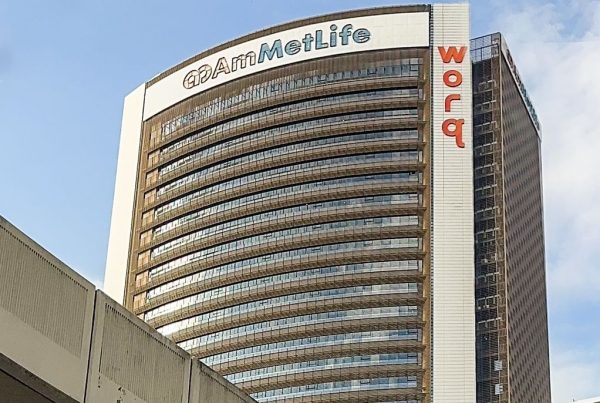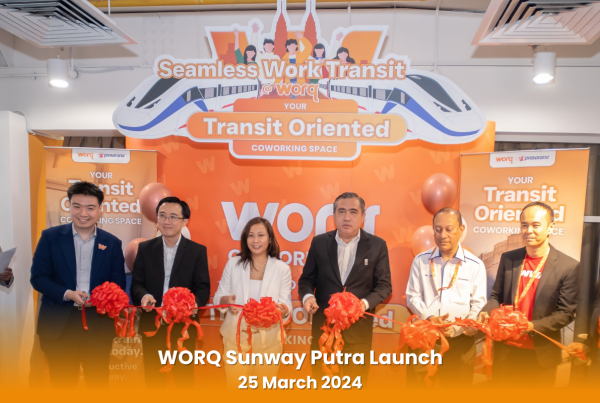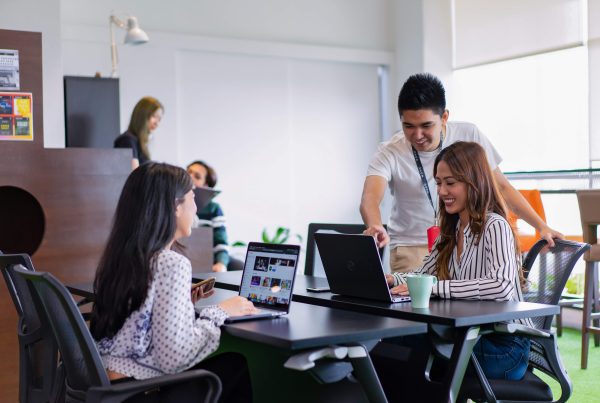Back in the days, one of the first things to do when someone wants to set up a business is to first rent or buy an office.
The general perception of the public towards coworking spaces is that it is a shared space for start-ups (often tech-related in nature). As one of the forerunners of coworking operators in Malaysia, WORQ’s first outlet in TTDI which opened in 2017 has indeed attracted many tech start-ups, however, this is not the only business that we see at our sites nowadays.
The history of coworking
According to the Coworking resource, the first coworking space was opened in 2005 in San Francisco. Many recognise Brad Neuberg as the individual who introduced the idea of shared working space with a business and social community as the support system.
This idea is also similar to what a “Hackerspace” is. A Hackerspace is a community-operated space where like-minded people gathered to collaborate and work on tech projects. The first hackerspace was founded in Berlin back in 1995, a precursor to the coworking concept.
What differentiates a coworking space and a Hackerspace is that the Hackerspace is skewed towards non-profit ventures and often used as a space for side projects after work. Enthusiastic tech community members gather here to invent, innovate, experiment to solve a real-life problem.
Redefining the future of workplaces
Fast forward to 2020, coworking spaces are mushrooming in Malaysia. Other than attracting tech startups, SMEs of all nature, MNCs are also seeing the benefit in being involved with coworking spaces.
In an EY publication – Real Estate Disruption: Challenges And Opportunities In A Rapidly Changing World – the publication identifies Technology, Demographics and Globalisation as the three primary forces behind the real estate disruption:
The above three forces are also redefining the future of work:
1. Technology innovation enables people to work and collaborate online.
2. Technology-savvy millennial workers that value work flexibility makes up 50% of the workforce in 2020.
3. Expansion of business across the globe.
In Deloitte’s “What Is The Future Of Work” insight published in April 2019, it is mentioned that with the shift in “how work can be done” and “who can do the work”, the workplace is also redefined. Instead of traditional co-located workplaces, companies are now open to distributed workplaces.
Workspace solutions beyond Coworking
However, the recent worldwide pandemic has brought a temporary halt to the growth of the coworking industry. Search enquiries for coworking space and workspaces have dropped drastically from the originally pre-pandemic highs. To many, the “social” element and “sharing” concept is a big no-no when social distancing is required.
The industry has started to pivot to focus on Business Continuity Plan solutions for companies looking for alternate sites for their teams. Some even converted their space into storage space for businesses.
The flexible nature of a coworking space enables it to adapt and cater to the needs of a business. Regardless of downsizing, expansion or as a disaster recovery site, a coworking space is flexible to cater to it as the very nature of its setup enables it to pivot quickly to changing demands.
Coworking is not just about hotdesking in a shared space, WORQ and the industry has also expanded the available solutions to:
1. Virtual Office
2. Work From Home Package
3. Alternate Office for Disaster Recovery and Business Continuity
As businesses are working to recover from the pandemic, a flexible workspace solution can help businesses to stay lean and agile. Instead of renting an entire office space, rent a space in a coworking space and leverage on beautifully designed spaces and facilities. Not only can cost expenditure be kept low, but there is also the added benefit of tapping into the available business resources and community network.
Community – the key differentiator of workspace solutions
The flexible workspace industry is seeing a 36% growth in terms of supply in Kuala Lumpur, based on statistics from JLL Asia-Pacific Research. Vijayakumar Tangarasan, the Country Head of IWG plc Malaysia, Brunei and Indonesia told The Malaysian Reserve:
“People are embracing the flexible working culture because they are trying to be in a community-based place. They also want to work closer to home.”
With more industry players coming into the scene, WORQ differentiates itself by positioning as a productivity community and more than just a workspace solution provider. The mission has always been about changing the way people work together. It does not only focus on the internal members, but WORQ also aims to bring together members of the external community – which are the businesses around the area.
All initiatives that WORQ run have a goal in mind, which is to build the community. Members are also encouraged to initiate micro-communities in order to fully enjoy the benefits of collaborating and sharing knowledge.
Experience it at WORQ
Interested to join our business community to experience the redefined workplace? Click here to join our Telegram channel to meet network, collaborate and learn from each other.
You can also book a visit to one of our outlets to experience the redefined workplace – join a space and community designed to maximise productivity for your business.
Call us at +6010-767 6704 or submit your interest now and our team will contact you within 24 hours.




